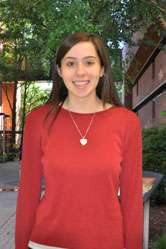Music
“The Kincaid Legacy”

Historically, the primary school of flute playing throughout the world was the French School, founded at the Paris Conservatory by Professor Paul Taffanel in the late nineteenth century. The first to break from this prominent school was the American flutist, William Kincaid. Kincaid’s influence rapidly spread throughout the United States through his students, who, at one point, held almost all the principal flute positions in the prominent orchestras in America. His revolutionary style evolved into the American school flute tradition and earned him the title of the father of American flute playing. The goal of this research is to investigate the role of William Kincaid in the establishment of the American flute school in the twentieth century and his impact upon today’s finest flute instructors through his teaching methods. My approach to understanding Kincaid’s influence principally entails experiencing, observing, and interviewing professional flutists who have studied with Kincaid’s students. Since Julius Baker is the most highly distinguished student of Kincaid, I plan to interview and study with a number of Baker’s students to learn what aspects of their flute training can be traced to Kincaid, acquiring knowledge passed down to them through this rich oral tradition. I will study Kincaid’s musical perspectives by reading and dissecting the prevalent analysis of his playing, Kincaidiana, and his books, Art and Practice of Modern Flute Technique and The Advanced Flutist. The culmination of my research will be a written essay analyzing my findings about the extent of Kincaid’s influence in the American school of flute playing as displayed through prominent Baker students. Additionally, I will give a presentation of my findings to the flute studio at UMBC, providing all the students with a booklet summarizing my results and outlining the history of the American flute school. This research will provide a detailed analysis of his musical contributions to American flute school and how this is displayed in the teaching of today’s finest flutists, a necessary resource for any flutist entering the education field.
How did you find your mentor for your research project?
My flute teacher, Dr. Lisa Cella, suggested that I apply for the URA. We discussed possible projects and decided on one together. It only seemed natural for her to be my mentor after this collaboration.
How did you know that this was the project you wanted to do?
As a flute player, I have always been interested in the history and development of the various styles of playing the flute in different countries. When I learned about William Kincaid, the father of American flute playing, I was fascinated by what I read and desired to learn more.
Is this your first independent research project?
This is not my first independent research project. In my high school, we were expected to successfully complete two twenty-page theses on topics of our own choosing in our junior and senior year. We were assigned faculty mentors to help us hone our topics. This experience greatly prepared me to apply for the Undergraduate Research Award.
Do you get course credit for this work? How much time do you put into it?
I do not receive course credit for this work. I plan to complete much of my research this summer. Part of my research entails attending masterclasses to interview various flutists who have been influenced by Kincaid’s teaching. Both of these one-week masterclasses occur in the summer.
How did you hear about the URA Program?
My faculty mentor suggested I apply for the program; I also heard about it from various professors who recommended that I apply.
What academic background did you have before you applied for the URA?
I have played the flute for eight years and I am a music major with a double emphasis in education and performance.
Was the application difficult to do?
For me, the most difficult part of the application was the editing process. I worked closely with my mentor and sent several drafts of my proposal to a few of my professors to get their thoughts. Hearing their insights really helped to hone my proposal.
What has been the hardest part about your research?
For me, the hardest part I think will be pacing myself. I am trying to do most of my research this summer as I have a heavy academic load during the fall and spring semesters.
What was the most unexpected thing?
I did not realize how intensely I had to revise my proposal. Every word had to be purposeful and communicate exactly what I meant. Writing the proposal was a wonderful writing exercise.
How does your research relate to your work in other classes?
My research will greatly aid in my Performance Studies class. My research entails attending several masterclasses over the summer, which have proven to be both enlightening and challenging.
What else are you involved in on campus?
In addition to my academic classes, I am involved in CRU, Campus Crusade for Christ.
What is your advice to other students about getting involved in research?
I would highly recommend that all students pursue some type of research during their undergraduate years. It is a wonderful opportunity to develop close relationships with professors and it is a great academic experience. It also is a superb addition to any resume.
What are your career goals?
After obtaining my Bachelor’s degree, I would love to pursue a Master’s degree in both Music Education and Music Performance. I also would enjoy teaching music both privately and in an elementary school.
7/16/2013